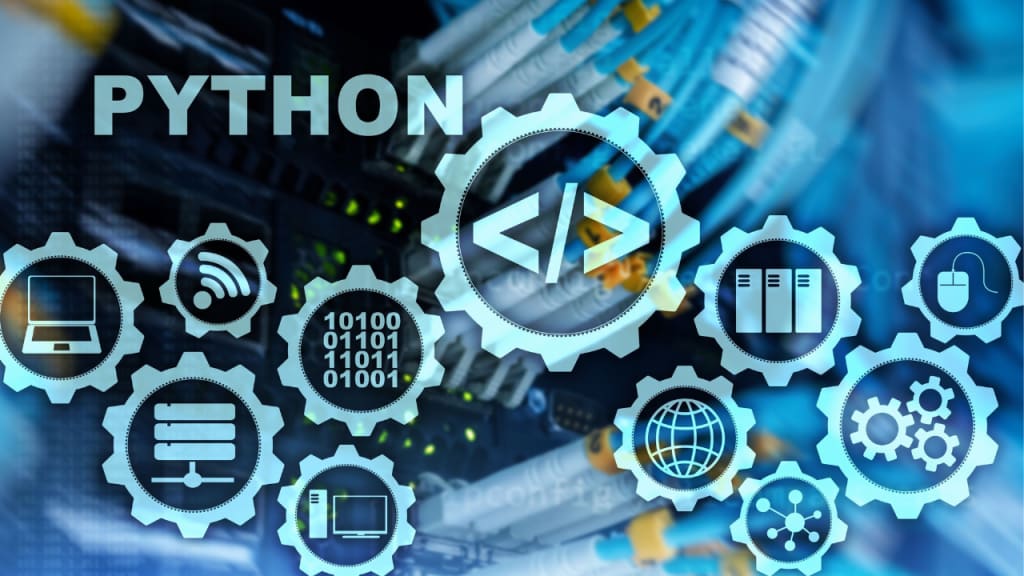
Python is a popular programming language for building websites because of its high level of abstraction, ease of use, and dynamic typing. Python's simplicity, flexibility, and a large collection of libraries have made it one of the most popular languages for web development. In this blog, we will share the 10 best Python Frameworks that you should consider in 2023 to stay at the top of your web development game.
Django
Django is a web framework written in Python that aims to simplify and speed up the process of creating a website. Developers can create sophisticated web apps rapidly because of the ORM, admin interface, authentication, and templating engine that comes standard. Django's popularity stems from its built-in security features and its vast collection of third-party libraries.
Flask
Developed with minimalism and simplicity in mind, Flask is a micro web framework. There are no extraneous features like a database abstraction layer or form validation included. Flask's minimalistic approach makes it ideal for small to medium-sized applications.
Pyramid
Pyramid is a web framework that can be scaled to big sizes and is highly adaptable. The adaptability of the Pyramid framework is attributed to its "plug-in" architecture, which confers upon developers the freedom to select the required components essential for constructing their applications. Pyramid is also designed to be compatible with other frameworks, making it easy to integrate into existing applications.
CherryPy
CherryPy is lightweight, robust which makes it one of the Best Python framework for web development. As it comes with its own server and can be set up quickly, it's perfect for lightweight programs. CherryPy's simplicity and speed make it a popular choice for building RESTful APIs.
Bottle
The bottle is an easy-to-use, quick, and lightweight Python web framework. Featuring an inherent server and templating engine, the framework is conducive to expeditiously developing web applications of small to medium scale. Bottle's simplicity and ease of use make it a popular choice for building prototypes and smaller applications.
Tornado
Tornado is a web framework that can handle high levels of concurrency in large web applications without sacrificing performance or scalability. Tornado is an apt choice for applications that necessitate real-time updates, such as chat systems and social media platforms, as it is tailored to cater to such exigencies with its accelerated performance and scalability. As a result, it is often favored for the creation of high-performance web applications.
TurboGears
A full-stack web framework, TurboGears prioritizes simplicity and adaptability. It has an object-relational mapper (ORM), authentication, and a templating engine already installed, which speeds up the process of creating sophisticated web applications. With TurboGears, integrating with third-party libraries and frameworks is a breeze because of its modular nature.
Web2Py
Web2Py is an all-inclusive web framework that prioritizes clarity and accessibility. Developers can quickly create complicated web applications because of the framework's in-built administration interface, authentication, and templating engine. Web2Py is widely used for prototyping and developing tiny apps because of its simplicity and ease of usage.
Falcon
Falcon is a lightweight, high-performance, and dependable Python framework for web development. It's lightweight and simple to use, making it ideal for creating RESTful APIs. Since Falcon is both quick and easy to use, it has become a favorite for developing APIs.
Hug
Hug is a lightweight, modular, and extensible python web application framework. It's lightweight and simple to use, making it ideal for creating RESTful APIs. Hug's ease of use and adaptability has made it a favorite for developing APIs and microservices.
Conclusion
In conclusion, there are many fantastic Python web frameworks available, making it a great language for developing websites. Whether you need a full-stack web framework or a minimalist framework, there is a Python framework that will suit your needs. Django, Flask, and Pyramid are popular choices for building large-scale web applications, while CherryPy, Bottle, and Falcon are great for smaller applications and RESTful APIs. Tornado and Hug are designed to handle high-concurrency applications, and Web2Py and TurboGears are excellent choices for building complex web applications quickly. Hire python developers to find the right frameworks for your next web development project.





Comments
Zoe Moore is not accepting comments at the moment
Want to show your support? Send them a one-off tip.